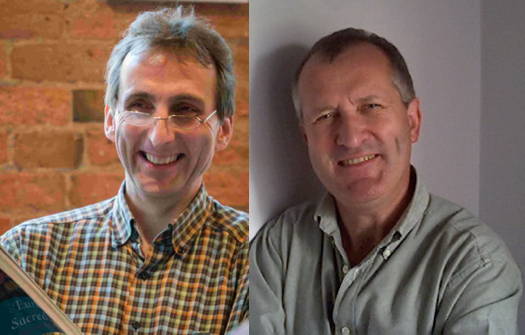 FEEDBACK: She said WHAT? Read what people think about our Classical Music Daily features, and have your say!
FEEDBACK: She said WHAT? Read what people think about our Classical Music Daily features, and have your say!
- Roger Norrington
- Jeanne Butcher
- Charles Koechlin
- Connecticut
- Berg
- Kyle Albertson
- Douglas Knehans: Ripple - Symphony No 1
- Robert Jones
 DISCUSSION: John Dante Prevedini leads a discussion about Music and the Visual World, including contributions from Celia Craig, Halida Dinova and Yekaterina Lebedeva.
DISCUSSION: John Dante Prevedini leads a discussion about Music and the Visual World, including contributions from Celia Craig, Halida Dinova and Yekaterina Lebedeva.
Extra Vibrancy
MIKE WHEELER listens to
Tchaikovsky and Fauré
from the Sitwell Singers
Tchaikovsky and Fauré don't, perhaps, make an obvious pairing, but they were put together effectively by Derby-based chamber choir the Sitwell Singers and conductor Malcolm Goldring - St John's Church, Derby, 12 October 2019.
Tchaikovsky was represented by seven sacred motets from a group of nine published in 1885, which the choir sang in Slavonic. Assistant conductor David Henshaw directed the first two - a slow, meditative setting of the Cherubic Hymn (two others followed later) and a bold, forthright 'Dostoino Est' (We praise and bless thee) - before handing over to Goldring for the rest of the evening. These were deeply-felt performances, making effective occasional use of solo voices, though perhaps dynamic contrasts could have been heightened a little more, and just occasionally tuning felt a bit insecure. The singers were arranged in so-called 'scrambled' position, mixing the different voice-parts which, as so often, gave extra vibrancy to the sound.

David Henshaw (left) and Malcolm Goldring
The last three of the motets were sung from the church's east end. Between the two groups came a rare piece of Russian organ music, Glazunov's Prelude and Fugue in D. While nothing about it sounds remotely Russian, Tom Corfield captured the processional character of the Prelude, followed by a firm, lucid account of the Fugue.
The singers were more conventionally arranged for Fauré's Requiem in part 2. He described it as 'gentle', and in this performance it certainly was. The intimacy of his original conception was nicely realised, the opening slightly slower and more solemn than we sometimes hear, with a smooth, pure-toned soprano line emerging at 'Te decet hymnus'. Big moments, such as the 'Osanna' in the Sanctus, were allowed to ring out without over-balancing the whole. Similarly, the Dies Irae section of the Libera Me was incisive, while resisting the temptation to over-dramatise. The Agnus Dei was taken at a good forward-moving tempo, and the final In Paradisum had a poised, glowing serenity that felt exactly right. There were three soloists for this performance, soprano Gina Coventry bringing an aptly vulnerable quality to the Pie Jesu, and David Tudor's light baritone in 'Hostias et preces' contrasting effectively with Christopher Motley's darker-toned Libera Me.
Copyright © 31 October 2019
Mike Wheeler,
Derby UK



